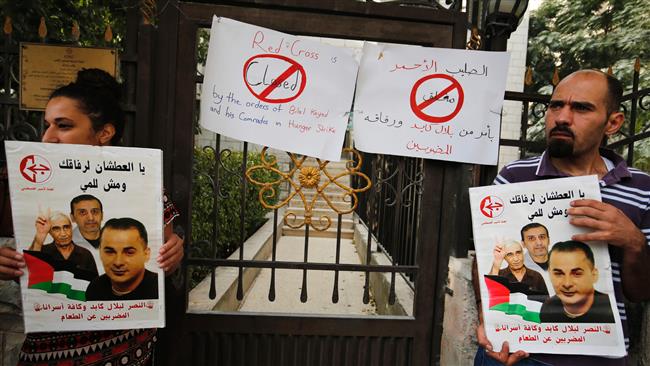
RNA - Physicians for Human Rights said in a statement on Wednesday that the Israeli Supreme Court "allowed the flagrant violation of rights of prisoners suffering from illnesses to continue."
Palestinian detainee Bilal Kayed has been on hunger strike for more than two months to protest his detention without charge or trial. He is currently chained by the leg to his bed in an Israeli hospital.
"What this disappointing position means is that Kayed will remain shackled for many more days, even when he is hospitalized in life-threatening condition at the intensive care unit," the group quoted Tamir Blank, one of the hunger striker's lawyers, as saying.
Kayed, a member of the Popular Front for the Liberation of Palestine (PFLP), was arrested in 2002 and spent 14 and a half years in Israeli jails. On the day he was scheduled to be released on June 13, Tel Aviv decided to extend his imprisonment term for another six months under the administrative detention policy.
Kayed’s health has sharply deteriorated, with his lawyer saying that the 35-year-old is now unable to move or speak on his own. Bilal’s mother, Raheeba Kayed, has been barred from visiting her son at the hospital.
Amnesty International has urged the Israeli regime to either release or charge Kayed.
There are currently more than 7,500 Palestinians being held at Israeli jails and detention facilities, nearly 700 of them under the so-called administrative detention, a practice that allows Israel to incarcerate Palestinians for periods of up to six months without charge or trial. Under the practice, the detention can be renewed an infinite number of times.
Some prisoners have been held in administrative detention for up to eleven years.
Palestinian inmates regularly hold hunger strikes in protest at both the administrative detention policy and their harsh prison conditions.
111/847/C